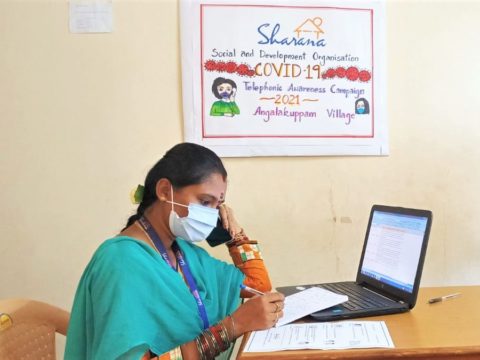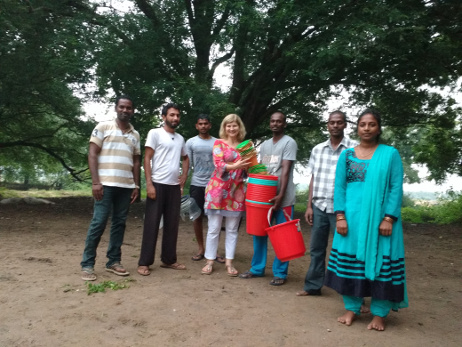In February 2018, Sharana’s social workers begun conducting outreach in T N Palayam, where an Irular tribe community lives.
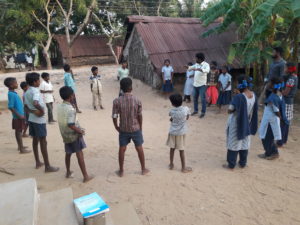
Sharana’s work in this area was requested by the Honourable Lieutenant Governor Dr Kiran Bedi’s office, given the deeply disadvantaged position of the tribe.
The Irular tribe traditionally lives in forest and mountain areas. However, due to socio-economic pressure, different groups have migrated to urban areas to improve their standards of living. The community that Sharana is working with is made up of about 25 families, which moved 25 km outside of Puducherry 10 years ago.
Over the decade, they have found it very difficult to integrate socially with the neighbouring villages. Gradually, the parents have begun to take jobs as seasonal agricultural workers, yet this is very poorly paid and unstable work. Within the village, most of the families lack basic facilities such as proper roofing and sanitation. Consequently, open defecation remains a major issue.
Meanwhile, the children face considerable difficulties in terms of accessing mainstream education. All of the children are first generation school-goers and are often discriminated against at school due to their cultural roots. For instance, the Irular speak a different dialect of Tamil, which marks the children out as different. This prejudice, as well as the economic barriers faced by families, has resulted in high rates of school drop-outs.
In addition to education-related problems, it has also been noted that the community would benefit from the awareness projects Sharana runs on issues such as waste management, sanitation and hygiene.
For several months, the social workers lay the groundwork by speaking to community, identifying their core issues and determining which children were most in need of individual sponsorship. In June, the Sharana began individually sponsoring 25 of the children from the tribe, providing them with them with financial, social and educational support. The social workers also work closely with the families of the children as it is very important to ensure that the families also value education. If parents feel they have a stake in their child’s academic success the child is more likely to be properly supported.
Our support to the community does not stop there. As it is only a small community, it has been possible for Sharana’s social workers to extend additional support to all 40 Irular Children through art sessions, Awareness through Sports and Games activities and storytelling. These activities are carried out every Thursday. Furthermore, while the primary focuses on Sharana’s support remains on the individually sponsored children (who are generally younger), we will also be able to extend assistance to the older children as and when the need is identified.
It has been very important for the social workers to construct an inclusive model of support when dealing with the Irular children and their families, given the close social ties that exist in the community. Two examples are the use of our Seeds of Change program and awareness initiatives, which aim to gradually bring about positive change across the whole community. In social groups such as this, individual progress and community progress are deeply intertwined; such that individual growth rests largely on positive change within the community, which in turn is driven by individuals. Understanding the nature of these social ties has enabled the social workers to develop strategies that will bring about long-lasting positive impacts for the children as well as their families and community.
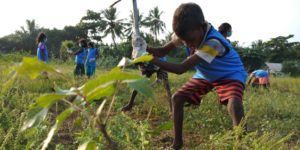
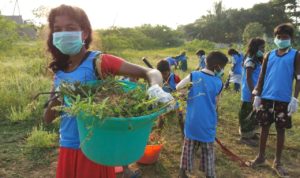
Since February 2018, Sharana’s team of social workers have worked closely with the community. The weekly sessions of the Seeds of Change program where awareness is created through sports and games have proven to be both effective and popular among children of all ages. However, there was no open Ground in which to conduct these sessions and every week the games had to be incorporated or squeezed into little spaces between the huts of the families, or in little streets and garbage and weed-covered open spaces in the area around the community’s homes.
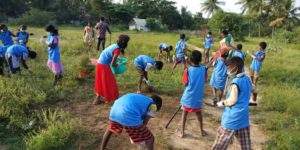
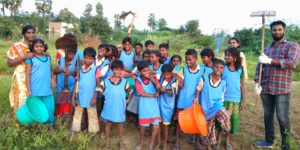
A few months into the routine, the social workers knew that if the sessions had to be more effective, a ground was required- so the idea came up while speaking with the children- why not create one by clearing the rubbish and grass from a piece of land not far from the huts? And for the last few weeks, this work on has been ongoing. And look at the results!
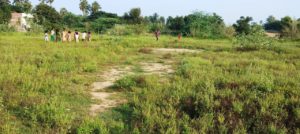
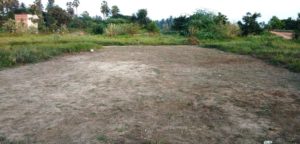
The team of Sharana cleared the ground, making sure safety standards were maintained (slippers, masks and gloves), and today we have a 60×40 feet ground available for Sharana to be able to conduct our weekly games and awareness sessions and for the children to play every day. The children feel like the ground belongs to THEM and have shown tremendous dedication throughout the cleaning activities.
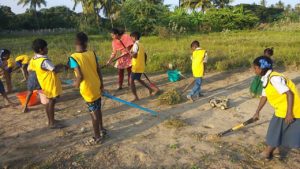
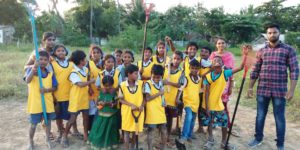
What is not possible where the will is there! Here is one more example of a children and community-led change. On your marks, get set, and go!







